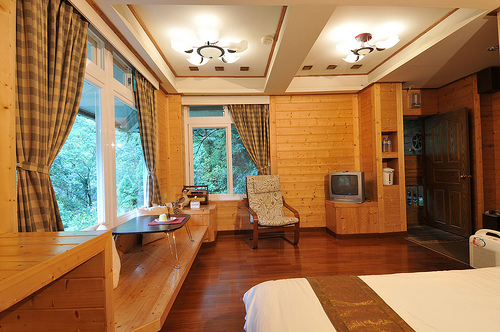Bed & Breakfasts: The Ultimate Home Businesses

There are many ways in which you can have your own home business. You can set yourself up as a caterer for kiddies’ birthday parties; you could make and alter clothes; and you could start a weekend cleaning business. But a real home business, in the very literal sense, is a bed and breakfast.
Bed and breakfasts, or B&Bs, are becoming increasingly popular among travellers who prefer the intimacy and comfort of a home to impersonal and anonymous hotels. As a result, B&Bs have cropped up all over the show. Even small towns, which don’t have much to offer travellers other than a rest stop before they drive on to more glamorous destinations, abound in B&Bs and guest houses.
Fancy playing host?
Many people think that running a B&B is an easy way to make money. They don’t realise that it involves a lot of hard work – and supreme people skills. They also don’t realise that B&Bs aren’t all that profitable, unless they happen to be extremely well situated and have a waiting list that stretches back two years.
That’s not say that you won’t make money off them to help pay your mortgage; it just means that you shouldn’t expect to laugh your way to the bank until you’ve been around for a couple of years.
What should you consider?
Several things, actually; for example:
Obviously, buying a new home is an expensive risk, but it does give you a clean slate so that you can properly plan the layout for your guests.
Turning your spare room in a guest room also carries some risk. After all, you will be living almost on top of your guests. You might even have to share a bathroom, depending on the size of the house.
Another option is to buy a home with a granny flat. You can give over your home to guests and live in the flat, or you can turn the flat into a guest room.
Other questions you need to ask include: Does a bed and breakfast constitute a residential business? What licences, registrations and certificates do you need? Will you need to pass health and safety inspections? How will your insurance be affected?
People book into B&Bs expecting a good breakfast. They will be bitterly disappointed if they walk into the kitchen in the morning and all they get is cereal and instant coffee. On the other hand, not everyone likes a full breakfast of eggs, bacon, sausages, French toast, regular toast, butter, jam, coffee, tea, and fruit juice. And some people can’t eat the full breakfast because of health problems or dietary requirements.
You can have a variety, like fruit and yoghurt, eggs and bacon, and cereal. But this can be expensive. You can get around this by asking guests what they would like when they check in or make the booking?
There are loads of other things to consider. Will you use a cleaning service or do all the cleaning yourself? How will you manage keys and security? Will you have several rooms with varying levels of comfort and luxury – and varying prices – or will all your rooms be the same standard? And, of course, what will you charge?
Your bed and breakfast’s success doesn’t entirely depend on your proximity to tourist attractions and natural wonders (although this helps). If you can provide guests with some special, something extra that they won’t get anywhere else, you’re more likely to succeed, no matter where you are. This something could be your friendliness, your finishing touches, your amenities, and the quality of your breakfast. So, you’d better be a good cook.

License: Creative Commons
image source
Sandy Cosser writes for a personal financial services provider that specialises in home loans, bond registrations, second bonds and pre-approvals.
